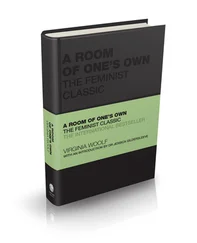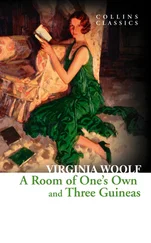Virginia Woolf - Jacob's Room
Здесь есть возможность читать онлайн «Virginia Woolf - Jacob's Room» весь текст электронной книги совершенно бесплатно (целиком полную версию без сокращений). В некоторых случаях можно слушать аудио, скачать через торрент в формате fb2 и присутствует краткое содержание. Жанр: Классическая проза, на английском языке. Описание произведения, (предисловие) а так же отзывы посетителей доступны на портале библиотеки ЛибКат.
- Название:Jacob's Room
- Автор:
- Жанр:
- Год:неизвестен
- ISBN:нет данных
- Рейтинг книги:3 / 5. Голосов: 1
-
Избранное:Добавить в избранное
- Отзывы:
-
Ваша оценка:
- 60
- 1
- 2
- 3
- 4
- 5
Jacob's Room: краткое содержание, описание и аннотация
Предлагаем к чтению аннотацию, описание, краткое содержание или предисловие (зависит от того, что написал сам автор книги «Jacob's Room»). Если вы не нашли необходимую информацию о книге — напишите в комментариях, мы постараемся отыскать её.
Jacob's Room — читать онлайн бесплатно полную книгу (весь текст) целиком
Ниже представлен текст книги, разбитый по страницам. Система сохранения места последней прочитанной страницы, позволяет с удобством читать онлайн бесплатно книгу «Jacob's Room», без необходимости каждый раз заново искать на чём Вы остановились. Поставьте закладку, и сможете в любой момент перейти на страницу, на которой закончили чтение.
Интервал:
Закладка:
"What about a walk on Saturday?"
("What's happening on Saturday?")
Then, taking out his pocket-book, he assured himself that the night of the Durrants' party came next week.
But though all this may very well be true-so Jacob thought and spoke-so he crossed his legs-filled his pipe-sipped his whisky, and once looked at his pocket-book, rumpling his hair as he did so, there remains over something which can never be conveyed to a second person save by Jacob himself. Moreover, part of this is not Jacob but Richard Bonamy-the room; the market carts; the hour; the very moment of history. Then consider the effect of sex-how between man and woman it hangs wavy, tremulous, so that here's a valley, there's a peak, when in truth, perhaps, all's as flat as my hand. Even the exact words get the wrong accent on them. But something is always impelling one to hum vibrating, like the hawk moth, at the mouth of the cavern of mystery, endowing Jacob Flanders with all sorts of qualities he had not at all-for though, certainly, he sat talking to Bonamy, half of what he said was too dull to repeat; much unintelligible (about unknown people and Parliament); what remains is mostly a matter of guess work. Yet over him we hang vibrating.
"Yes," said Captain Barfoot, knocking out his pipe on Betty Flanders's hob, and buttoning his coat. "It doubles the work, but I don't mind that."
He was now town councillor. They looked at the night, which was the same as the London night, only a good deal more transparent. Church bells down in the town were striking eleven o'clock. The wind was off the sea. And all the bedroom windows were dark-the Pages were asleep; the Garfits were asleep; the Cranches were asleep-whereas in London at this hour they were burning Guy Fawkes on Parliament Hill.
CHAPTER SIX
The flames had fairly caught.
"There's St. Paul's!" some one cried.
As the wood caught the city of London was lit up for a second; on other sides of the fire there were trees. Of the faces which came out fresh and vivid as though painted in yellow and red, the most prominent was a girl's face. By a trick of the firelight she seemed to have no body. The oval of the face and hair hung beside the fire with a dark vacuum for background. As if dazed by the glare, her green-blue eyes stared at the flames. Every muscle of her face was taut. There was something tragic in her thus staring-her age between twenty and twenty-five.
A hand descending from the chequered darkness thrust on her head the conical white hat of a pierrot. Shaking her head, she still stared. A whiskered face appeared above her. They dropped two legs of a table upon the fire and a scattering of twigs and leaves. All this blazed up and showed faces far back, round, pale, smooth, bearded, some with billycock hats on; all intent; showed too St. Paul's floating on the uneven white mist, and two or three narrow, paper-white, extinguisher-shaped spires.
The flames were struggling through the wood and roaring up when, goodness knows where from, pails flung water in beautiful hollow shapes, as of polished tortoiseshell; flung again and again; until the hiss was like a swarm of bees; and all the faces went out.
"Oh Jacob," said the girl, as they pounded up the hill in the dark, "I'm so frightfully unhappy!"
Shouts of laughter came from the others-high, low; some before, others after.
The hotel dining-room was brightly lit. A stag's head in plaster was at one end of the table; at the other some Roman bust blackened and reddened to represent Guy Fawkes, whose night it was. The diners were linked together by lengths of paper roses, so that when it came to singing "Auld Lang Syne" with their hands crossed a pink and yellow line rose and fell the entire length of the table. There was an enormous tapping of green wine-glasses. A young man stood up, and Florinda, taking one of the purplish globes that lay on the table, flung it straight at his head. It crushed to powder.
"I'm so frightfully unhappy!" she said, turning to Jacob, who sat beside her.
The table ran, as if on invisible legs, to the side of the room, and a barrel organ decorated with a red cloth and two pots of paper flowers reeled out waltz music.
Jacob could not dance. He stood against the wall smoking a pipe.
"We think," said two of the dancers, breaking off from the rest, and bowing profoundly before him, "that you are the most beautiful man we have ever seen."
So they wreathed his head with paper flowers. Then somebody brought out a white and gilt chair and made him sit on it. As they passed, people hung glass grapes on his shoulders, until he looked like the figure-head of a wrecked ship. Then Florinda got upon his knee and hid her face in his waistcoat. With one hand he held her; with the other, his pipe.
"Now let us talk," said Jacob, as he walked down Haverstock Hill between four and five o'clock in the morning of November the sixth arm-in-arm with Timmy Durrant, "about something sensible."
The Greeks-yes, that was what they talked about-how when all's said and done, when one's rinsed one's mouth with every literature in the world, including Chinese and Russian (but these Slavs aren't civilized), it's the flavour of Greek that remains. Durrant quoted Aeschylus-Jacob Sophocles. It is true that no Greek could have understood or professor refrained from pointing out-Never mind; what is Greek for if not to be shouted on Haverstock Hill in the dawn? Moreover, Durrant never listened to Sophocles, nor Jacob to Aeschylus. They were boastful, triumphant; it seemed to both that they had read every book in the world; known every sin, passion, and joy. Civilizations stood round them like flowers ready for picking. Ages lapped at their feet like waves fit for sailing. And surveying all this, looming through the fog, the lamplight, the shades of London, the two young men decided in favour of Greece.
"Probably," said Jacob, "we are the only people in the world who know what the Greeks meant."
They drank coffee at a stall where the urns were burnished and little lamps burnt along the counter.
Taking Jacob for a military gentleman, the stall-keeper told him about his boy at Gibraltar, and Jacob cursed the British army and praised the Duke of Wellington. So on again they went down the hill talking about the Greeks.
A strange thing-when you come to think of it-this love of Greek, flourishing in such obscurity, distorted, discouraged, yet leaping out, all of a sudden, especially on leaving crowded rooms, or after a surfeit of print, or when the moon floats among the waves of the hills, or in hollow, sallow, fruitless London days, like a specific; a clean blade; always a miracle. Jacob knew no more Greek than served him to stumble through a play. Of ancient history he knew nothing. However, as he tramped into London it seemed to him that they were making the flagstones ring on the road to the Acropolis, and that if Socrates saw them coming he would bestir himself and say "my fine fellows," for the whole sentiment of Athens was entirely after his heart; free, venturesome, high-spirited... She had called him Jacob without asking his leave. She had sat upon his knee. Thus did all good women in the days of the Greeks.
At this moment there shook out into the air a wavering, quavering, doleful lamentation which seemed to lack strength to unfold itself, and yet flagged on; at the sound of which doors in back streets burst sullenly open; workmen stumped forth.
Florinda was sick.
Mrs. Durrant, sleepless as usual, scored a mark by the side of certain lines in the Inferno.
Clara slept buried in her pillows; on her dressing-table dishevelled roses and a pair of long white gloves.
Still wearing the conical white hat of a pierrot, Florinda was sick.
The bedroom seemed fit for these catastrophes-cheap, mustard-coloured, half attic, half studio, curiously ornamented with silver paper stars, Welshwomen's hats, and rosaries pendent from the gas brackets. As for Florinda's story, her name had been bestowed upon her by a painter who had wished it to signify that the flower of her maidenhood was still unplucked. Be that as it may, she was without a surname, and for parents had only the photograph of a tombstone beneath which, she said, her father lay buried. Sometimes she would dwell upon the size of it, and rumour had it that Florinda's father had died from the growth of his bones which nothing could stop; just as her mother enjoyed the confidence of a Royal master, and now and again Florinda herself was a Princess, but chiefly when drunk. Thus deserted, pretty into the bargain, with tragic eyes and the lips of a child, she talked more about virginity than women mostly do; and had lost it only the night before, or cherished it beyond the heart in her breast, according to the man she talked to. But did she always talk to men? No, she had her confidante: Mother Stuart. Stuart, as the lady would point out, is the name of a Royal house; but what that signified, and what her business way, no one knew; only that Mrs. Stuart got postal orders every Monday morning, kept a parrot, believed in the transmigration of souls, and could read the future in tea leaves. Dirty lodging-house wallpaper she was behind the chastity of Florinda.
Читать дальшеИнтервал:
Закладка:
Похожие книги на «Jacob's Room»
Представляем Вашему вниманию похожие книги на «Jacob's Room» списком для выбора. Мы отобрали схожую по названию и смыслу литературу в надежде предоставить читателям больше вариантов отыскать новые, интересные, ещё непрочитанные произведения.
Обсуждение, отзывы о книге «Jacob's Room» и просто собственные мнения читателей. Оставьте ваши комментарии, напишите, что Вы думаете о произведении, его смысле или главных героях. Укажите что конкретно понравилось, а что нет, и почему Вы так считаете.











